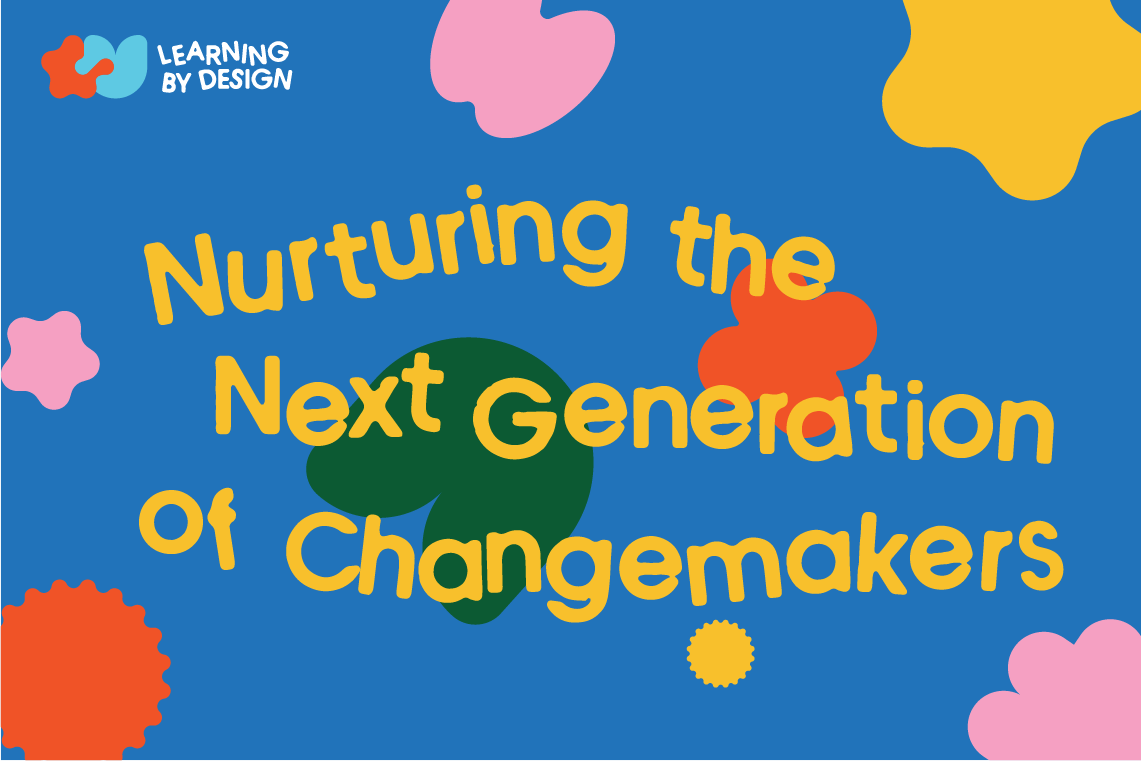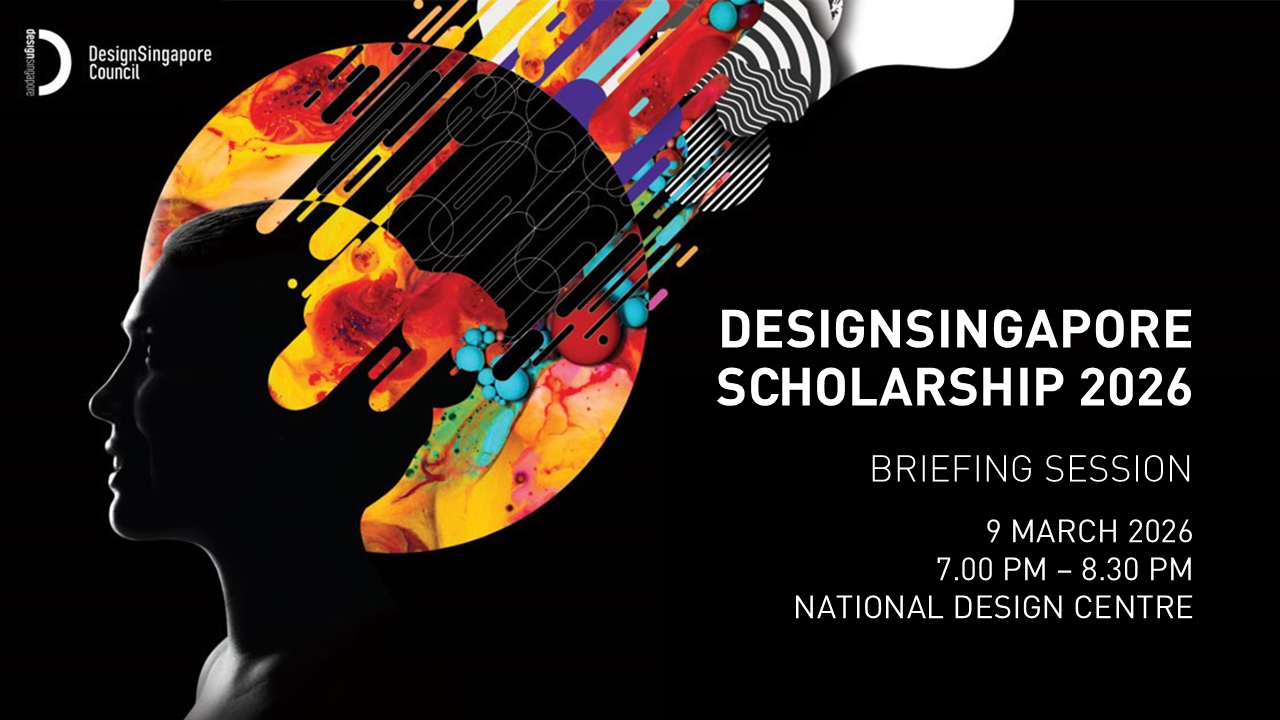Design thinking helped menswear label Benjamin Barker deliver excellent customer service, contributing to record sales in 2019
Homegrown menswear label Benjamin Barker turned to design thinking initially to create a tailored onboarding and training programme for its Fashion Advisors. But what resulted from the co-designing process was service culture change for the SME, contributing to record sales and growth.
Challenge
Benjamin Barker is a purveyor of smart-casual, heritage-inspired apparel for men. Founded in 2009 by Nelson Yap, it currently has 10 outlets in Singapore, with franchises in Malaysia, Cambodia and Australia. Among its almost 90-strong local staff are about 35 customer-facing Fashion Advisors.
Before 2019, there was no formal training for newly-hired Fashion Advisors. They picked up skills and knowledge on-the-job from Store Managers. Thus, there was no consistency across stores.
The company’s existing “training manual” consisted of a set of Standard Operating Procedures (SOPs), which was outdated and inconsistent from multiple ad hoc updates. Because it was presented in plain text and was wordy, most of the staff did not refer to it.
The lack of standardised training affected the Fashion Advisors’ confidence when interacting with customers as they were never sure if they were dispensing the “right” advice and were constantly second-guessing themselves.
For these reasons, Yap (Founder & Creative Director) engaged Ideactio in February 2019. The initial brief to the design consultancy firm was to develop a coherent onboarding and training programme for new Fashion Advisors.
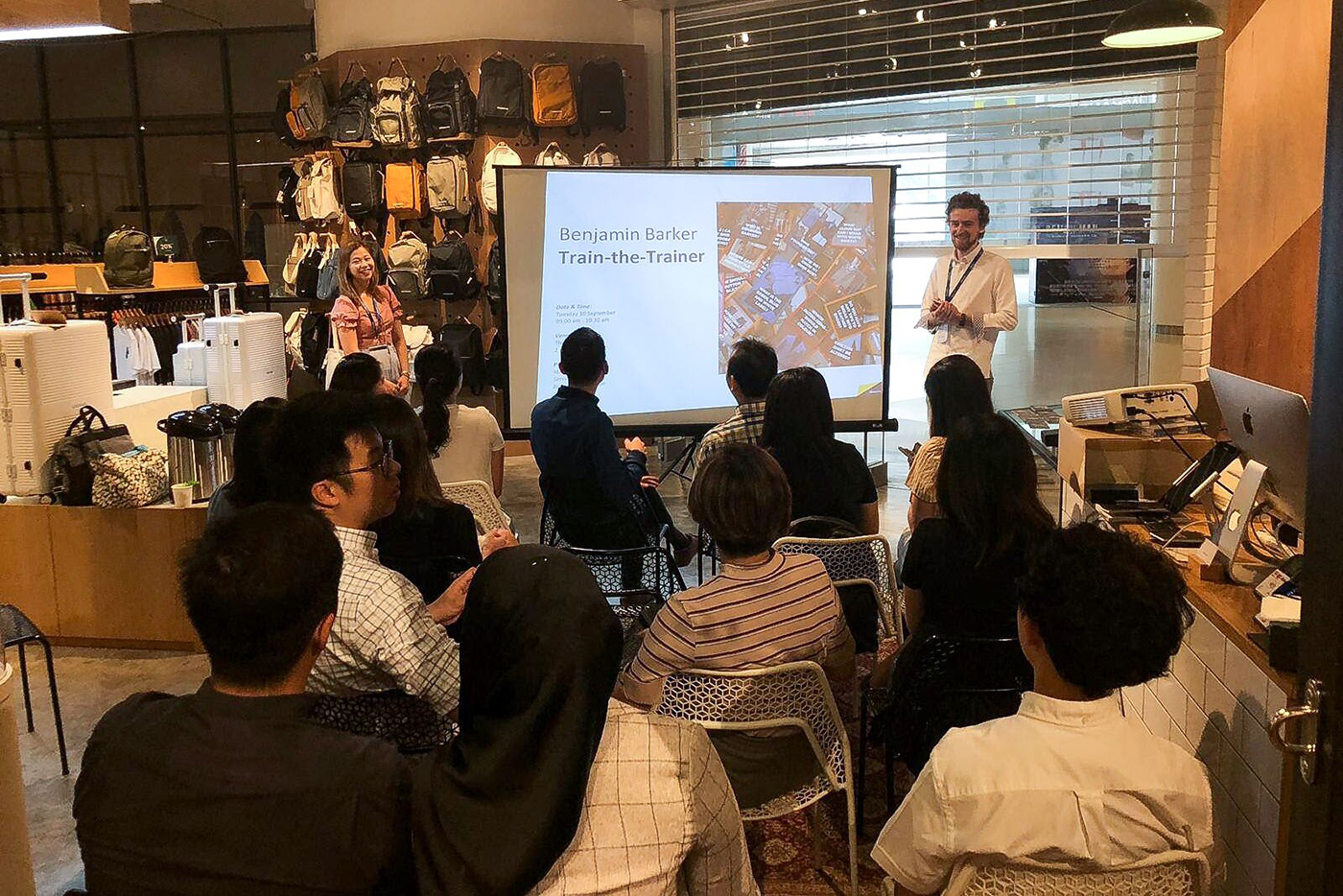
Methodology
Ideactio employed a Design Thinking approach, characterised by people-centricity and co-design.
Felix Mollinga (Project Lead / Service Designer & Researcher) spent three months interviewing key staff, which included – among others – the chief designer, visual merchandiser and product trainer, store managers and supervisors.
To understand the ground situation, the Ideactio team carried out ethnographic observations. A mystery shopper was also sent into stores to observe and experience their customer service.

A key part of this project was the creation of artefacts, in the form of game cards and training manuals. The content development for these educational resources also led to an in-depth study of the organisation’s vision, mission, structure and branding.
The information gathered was shared with Benjamin Barker, and what ensued was a co-designing process of ideation, iteration and execution; with ideas being prototyped and fine-tuned.
Nav Qirti, Principal at Ideactio, points out, “An important outcome of the co-designing journey was that the initial brief evolved from a staff training project into a service culture project.”
Damien Tan, Benjamin Barker’s Chief Operating Officer, believes that a great customer service experience is a reflection of an organisation and its culture. To achieve a service culture that’s driven by empathy, purpose and brand, staff behaviour had to be shaped by service principles and values.

So if we’re able to provide the best experience to our customers, I believe we have a winning formula.
“Once we started digging deeper into what this brand was about and why the staff felt it was special, we got a wealth of insights which were critical for us in designing the training programme,” says Mollinga.
Key insights gathered that influenced the training programme
Front-liner profile: The Fashion Advisors were largely non-native speakers (from Malaysia, Vietnam and China). As such, they preferred the information to be bite-sized, visual, and easy to understand.
Benjamin Barker’s unique branding: Benjamin Barker’s ads showed men in suits wearing sneakers or on skateboards – “a modern classic gentleman” who didn’t fit the typical bill. As such, Fashion Advisors had to know the seemingly paradoxical brand identity well.
Lack of styling knowledge: Benjamin Barker sold complete outfit for men: shirts, pants, blazers, ties, belts, shoes, pocket squares and lapel pins. But most customers left the store with just what they walked in to buy, because the staff were only able to facilitate a sale but not to upsell. The key issue was that they lacked knowledge of styling (putting together an outfit) necessary for upselling.
Engaging content needed: Knowing how to put together an outfit involved learning about colour theory, what to wear for different occasions, understanding the value of using accessories, and more. To make learning fun and interactive, the training material would have to include game cards, QR codes with links to demonstration videos, and role-play to practise skills.
14 types of customers: From ethnographic observations, 12 customer profile cards were created, detailing what each looked out for, required and preferred. Two additional profiles – Angry and Verbally Abusive – were added to enable staff to practise handling various customer types and scenarios.
Beyond selling: Good customer experience goes beyond being served by a confident and knowledgeable Fashion Advisor. For the staff, it also involved engaging customers in a conversational way or being patient in trying circumstances. As such, soft skills had to be taught.
Time constraints: Setting aside time for training was a challenge because the priority for retail staff was their daily sales and operations. As such, the training had to be designed to be self-administered and integrated into the work-day.
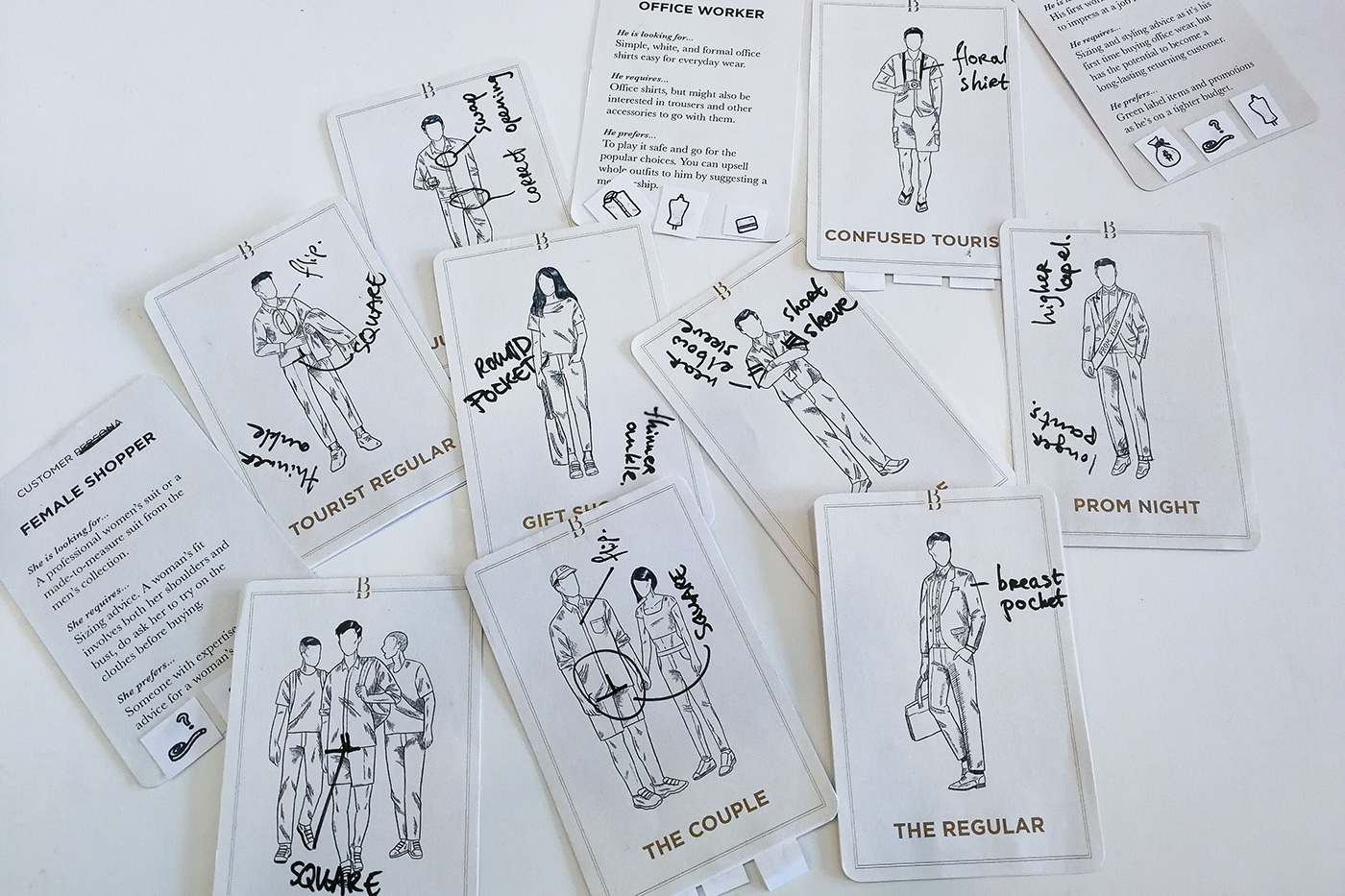
A service culture capability-building programme
During content development, Ideactio realised the overwhelming amount of information the staff had to know in order to sell menswear: Fabric care, leather goods, consignment items, store visual merchandising, and more. These, they organised into a basic training structure.
The outcome was a service culture capability-building programme that spanned two months, with exercises to be practised on a daily basis. The training kit came with two training manuals and a pack of game cards covering areas such as Service Principles, Customer and Situation.
For each day of the week, a specific category was focused on: Mystery Mondays (random topic), Products on Tuesdays, Styling on Wednesdays, Operations on Thursday, and Customer Service on Fridays. The content gets increasingly more advanced as the weeks go by.
Each day, the trainee would follow a process: The first 15 minutes of the day would be spent with the Store Manager going through the day’s objective and morning activity. Throughout the day, there would be an activity to focus the learning; and the day would end with key takeaways and a worksheet.
Outcome
The project ran from February to September 2019. In Benjamin Barker’s 10-year history, 2019 was their most profitable year. Tan estimates that the company made close to S$15 million, which is a 15 to 20 percent increase from 2018. While many factors contributed to that, Tan believes “this project was one of the key factors that led to the record growth of the company.”
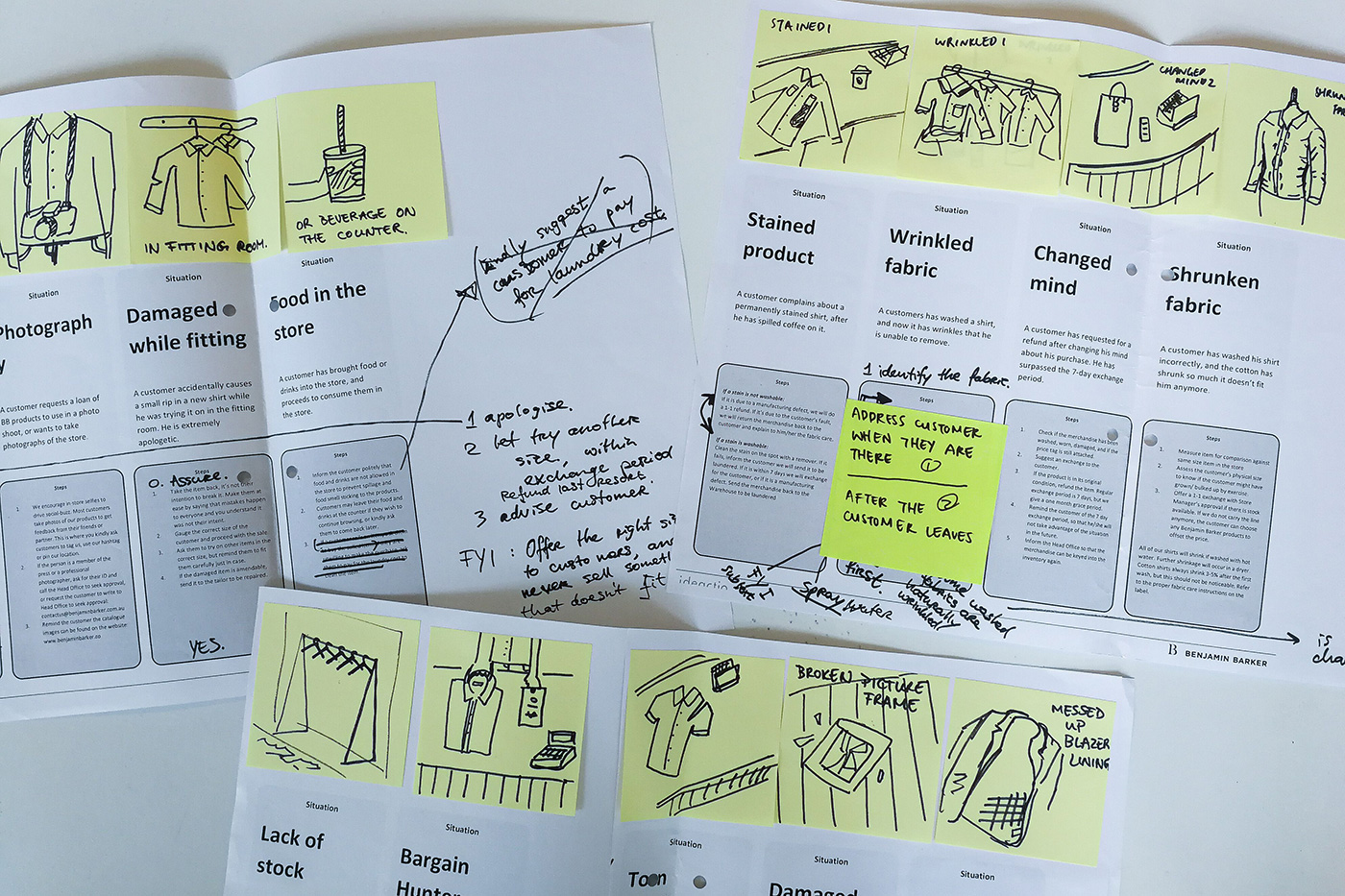
The project has also enhanced customer service. “It’s hard to quantify a good customer experience, but we are receiving more unsolicited compliments from our real-time customer feedback system in stores and on social media. We believe that’s a clear indication we’re moving in the right direction.”
Overall, the Fashion Advisors are happier and more confident because they know what they need to do, Tan adds. “If they’re unsure about anything, they can refer to the training materials.”
The training materials also came in useful during the COVID-19 retail slow-down, when Workforce Singapore encouraged companies to use that period to upskill staff. “One area we found our people lacking in was visual merchandising and product knowledge, so we developed an internal course and used this deck of cards as part of the training material,” says Tan of how they adapted the project.
In the pipelines too is taking the training programme online. “We have invested in a HR software which has a training component where we can upload these training modules,” adds Tan. “Our staff can do these exercises online, and it will be easier for us to follow-up.”
Benjamin Barker has plans to extend this training programme to their franchised stores overseas, with the aim of achieving a consistent service culture across borders.
On hindsight, Tan feels the process was time-consuming but fruitful. “In the long term, systemising the operational and customer journey processes through DT really gives everyone greater clarity.”
He believes such a project is helpful and timely for retailers. “With the proliferation of online shopping, what differentiates a physical store from an online store is the customer experience. So if we’re able to provide the best experience to our customers, I believe we have a winning formula.”



